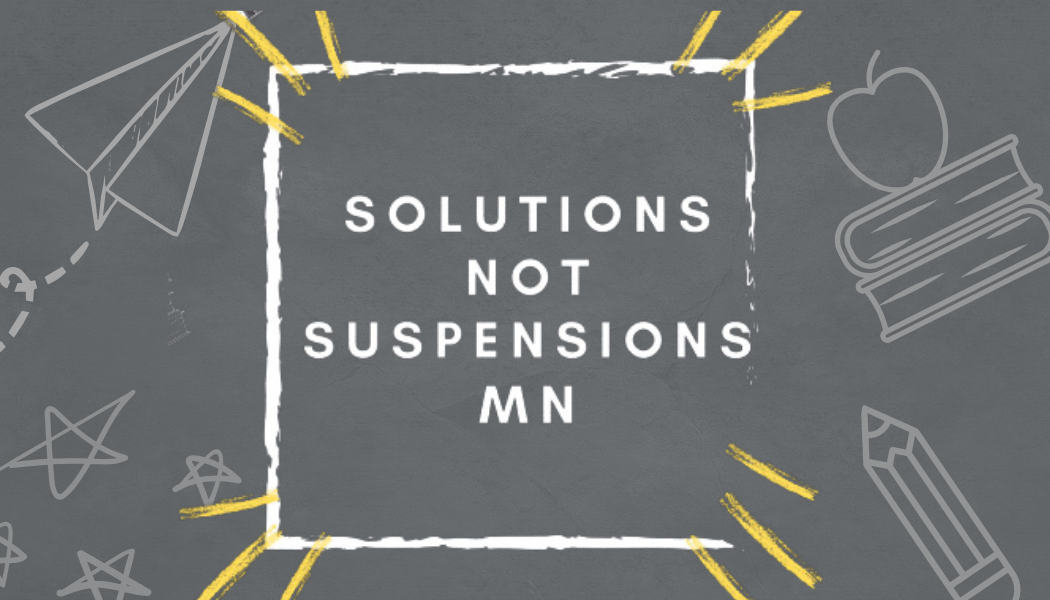
Suspensions and Student Pushout
What We Know
Our work is informed by research, which shows that racial and disability disparities in school discipline are pervasive and not necessary.
Wide disparities exist in minnesota schools’ use of exclusionary discipline
According to the Minnesota Department of Human Rights, in the 2018-19 school year:
Students of color represented a little less than half of the student population but received 80 percent of all suspensions & expulsions.
African-American students represented 18 percent of the student population but received 54 percent of all suspensions & expulsions based on subjective behavior.
Special Education students represented 14 percent of the student population but received 59 percent of all suspensions and expulsions.
For more information, visit the Minnesota Department of Human Rights.
Exclusionary practices lead to lower academic achievement and high costs for society
Several studies note that removing students from valuable class time contributes to gaps in academic learning and ultimately costs students and the economy. Here is a link to an important study called Lost Opportunities: How Disparate School Discipline Continues to Drive Differences in the Opportunity to Learn.
Exclusionary discipline is not necessary
There are many alternatives to exclusionary discipline that more effectively promote positive learning environments for all students, such as:
Restorative Practices
Positive Behavior Intervention and Support
Safe and Responsive Schools
Community-School Partnerships
Here is more information about effective alternatives: Duke Report
Schools and districts should adopt discipline policies to promote positive school climates
The Dignity in Schools Campaign’s Model School Code on Education & Dignity presents a set of recommended policies to schools, districts and legislators to help end school pushout and protect the human rights to education, dignity, participation and freedom from discrimination. The Code is the culmination of several years of research and dialogue with students, parents, educators, advocates and researchers who came together to envision a school system that supports all children and young people in reaching their full potential.
